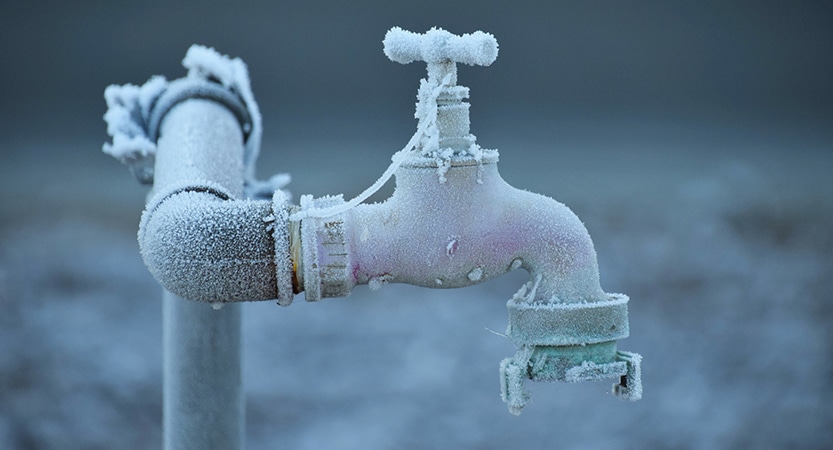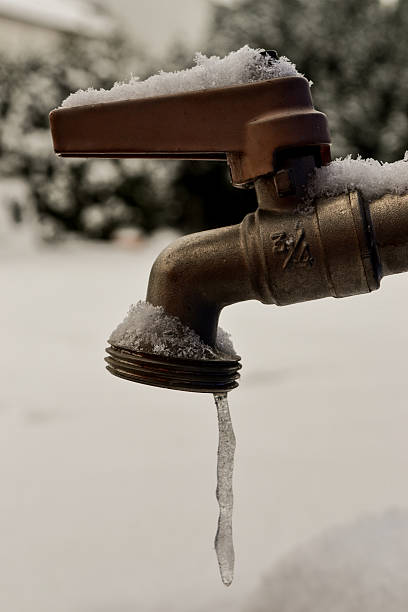Tips to Keep Your Pipes from Freezing Issues: Important Guidance
Tips to Keep Your Pipes from Freezing Issues: Important Guidance
Blog Article
What're your opinions with regards to How to Prevent Your Pipes From Freezing?

Cold weather can ruin your pipes, especially by freezing pipes. Here's how to prevent it from occurring and what to do if it does.
Introduction
As temperatures decrease, the danger of frozen pipelines rises, possibly leading to costly repair services and water damages. Understanding exactly how to avoid icy pipes is vital for homeowners in cool climates.
Prevention Tips
Protecting vulnerable pipes
Cover pipelines in insulation sleeves or make use of warm tape to protect them from freezing temperature levels. Concentrate on pipelines in unheated or external locations of the home.
Heating methods
Maintain interior areas adequately heated up, specifically locations with plumbing. Open closet doors to enable warm air to circulate around pipelines under sinks.
Exactly how to determine frozen pipes
Seek decreased water circulation from taps, uncommon odors or noises from pipelines, and noticeable frost on subjected pipes.
Long-Term Solutions
Architectural modifications
Think about rerouting pipelines away from outside walls or unheated areas. Add additional insulation to attics, basements, and crawl spaces.
Updating insulation
Buy premium insulation for pipelines, attic rooms, and wall surfaces. Proper insulation assists keep constant temperature levels and decreases the threat of frozen pipes.
Securing Exterior Plumbing
Garden hoses and outside faucets
Detach and drain garden pipes prior to winter season. Set up frost-proof faucets or cover outdoor faucets with shielded caps.
Comprehending Icy Pipelines
What causes pipes to ice up?
Pipes freeze when subjected to temperature levels below 32 ° F (0 ° C) for extended durations. As water inside the pipes freezes, it expands, taxing the pipe walls and possibly triggering them to rupture.
Dangers and damages
Icy pipelines can cause water interruptions, residential or commercial property damage, and pricey repairs. Ruptured pipes can flood homes and cause substantial structural damages.
Indicators of Frozen Water Lines
Identifying frozen pipes early can stop them from breaking.
What to Do If Your Pipes Freeze
Immediate activities to take
If you presume icy pipes, maintain faucets available to soothe pressure as the ice thaws. Use a hairdryer or towels soaked in hot water to thaw pipes gradually.
Conclusion
Protecting against frozen pipelines requires positive measures and fast actions. By comprehending the causes, indications, and preventive measures, property owners can secure their plumbing during cold weather.
5 Ways to Prevent Frozen Pipes
Drain Outdoor Faucets and Disconnect Hoses
First, close the shut-off valve that controls the flow of water in the pipe to your outdoor faucet. Then, head outside to disconnect and drain your hose and open the outdoor faucet to allow the water to completely drain out of the line. Turn off the faucet when done. Finally, head back to the shut-off valve and drain the remaining water inside the pipe into a bucket or container. Additionally, if you have a home irrigation system, you should consider hiring an expert to clear the system of water each year.
Insulate Pipes
One of the best and most cost-effective methods for preventing frozen water pipes is to wrap your pipes with insulation. This is especially important for areas in your home that aren’t exposed to heat, such as an attic. We suggest using foam sleeves, which can typically be found at your local hardware store.
Keep Heat Running at 65
Your pipes are located inside your walls, and the temperature there is much colder than the rest of the house. To prevent your pipes from freezing, The Insurance Information Institute suggests that you keep your home heated to at least 65 degrees, even when traveling. You may want to invest in smart devices that can keep an eye on the temperature in your home while you’re away.
Leave Water Dripping
Moving water — even a small trickle — can prevent ice from forming inside your pipes. When freezing temps are imminent, start a drip of water from all faucets that serve exposed pipes. Leaving a few faucets running will also help relieve pressure inside the pipes and help prevent a rupture if the water inside freezes.
Open Cupboard Doors
Warm your kitchen and bathroom pipes by opening cupboards and vanities. You should also leave your interior doors ajar to help warm air circulate evenly throughout your home.

We were made aware of that report about How to Prevent Your Pipes From Freezing through a good friend on another web page. Do you know someone else who is truly interested in the topic? Please feel free to share it. Thanks a lot for taking the time to read it.
Request Appointment Report this page